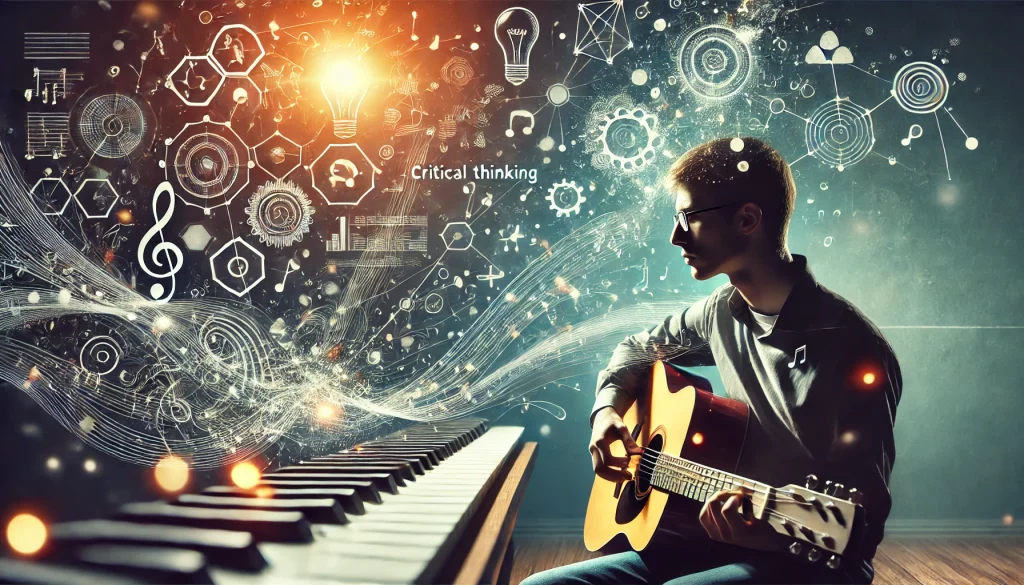
Playing an instrument is more than just making music—it’s a workout for your brain. Every time you learn a new song, master a tricky rhythm, or figure out how to fix a mistake, you’re strengthening your problem-solving skills. These skills don’t just help you in music; they carry over into school, work, and everyday life.
Breaking Down Complex Problems
Learning an instrument teaches you how to break down complex challenges into smaller, manageable steps. A difficult piece of music might seem overwhelming at first, but musicians learn to tackle it one measure at a time. This same approach applies to real-life problem-solving—whether you’re solving a math problem, planning a project, or making an important decision, breaking it down into steps makes it easier to handle.
Thinking Creatively
Music encourages creative problem-solving. When a musician encounters a challenging part of a song, they have to think of different ways to improve. Should they slow it down? Change their hand positioning? Try a different technique? This ability to experiment with solutions helps in many areas of life, from writing a story to developing new ideas at work.
Adapting to Change
Playing an instrument requires quick thinking. If a musician makes a mistake in a performance, they have to keep going and adjust in the moment. This teaches flexibility and adaptability—important skills for handling unexpected challenges in daily life. Whether it’s a sudden change in plans or a new situation at work, musicians are used to staying calm and adjusting on the spot.
Strengthening Memory and Critical Thinking
Music involves both short-term and long-term memory. When practicing, musicians must remember notes, rhythms, and techniques while also thinking ahead to the next section of the piece. This strengthens critical thinking and trains the brain to hold and process multiple pieces of information at once, a skill that is useful in problem-solving across different fields.
Building Patience and Persistence
Solving problems takes time, and learning an instrument teaches patience. When a musician struggles with a difficult passage, they don’t give up—they practice until they get it right. This persistence helps build resilience in everyday life. Whether tackling a tough school assignment or working through a complicated project, musicians know that persistence leads to progress.
Applying Music Skills to Real Life
The problem-solving skills developed through music help in many areas of life. Students who play instruments often perform better in subjects like math and science because they’ve trained their brains to analyze patterns and solve challenges. Adults who play music find that they approach work projects and decision-making with more creativity and confidence.
Music is more than just a hobby—it’s a powerful tool for strengthening the mind. Whether you’re learning your first instrument or mastering a new piece, every note you play is sharpening your ability to think, adapt, and solve problems.

